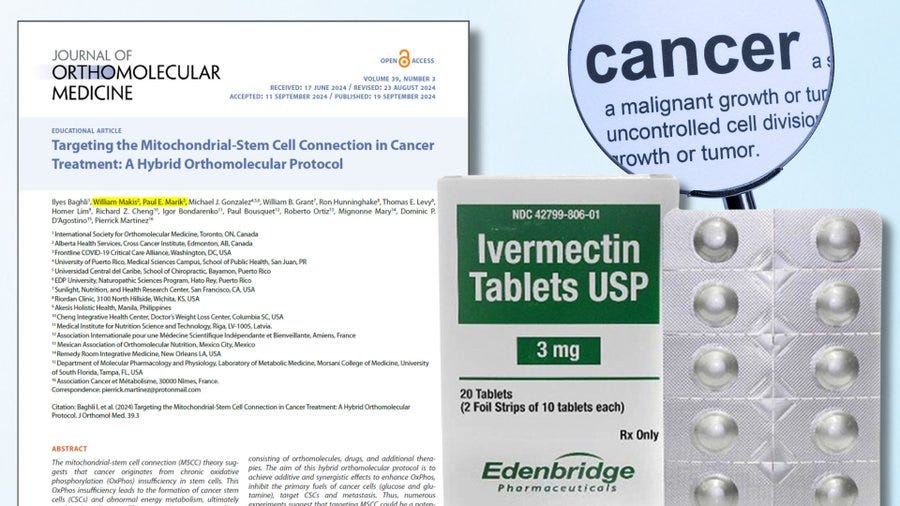An alternative approach to cancer treatment
Targeting the Mitochondrial-Stem Cell Connection in Cancer Treatment: A Hybrid Orthomolecular Protocol
The quest for alternative treatments of cancer is something many have researched, and tried.
Within this gamut, are very many honestly presented approaches with phyto-medicines, herbs and meditation. There are also those out there to make a quick buck, praying on peoples’ desperation and hope. In addition, when news breaks out about miracle cures from aromatic plants such as lemongrass, farmers have been duped into growing these crops by opportunists.
For a decade, researchers have identified and presented data about the ability of Ivermectin to block to inhibit the proliferation of cancer MSCC. Since this paper there have been a number of studies confirming the efficacy of Ivermectin against cancer. One paper that attracted personal interest was a hypothesised hybrid orthomolecular protocol, which could be an alternative to the standard approaches using chemotherapy and radiation.
I must state here, this paper isn’t based on clinical data. Its more recommendations from an extensive literature review of previous research. Not seeing any actual real data was a disappointment. However, out of the possibility of someone out there who may be interested, I am bringing this to readers’ attention.
The paper for those interested, “Targeting the Mitochondrial-Stem Cell Connection in Cancer Treatment: A Hybrid Orthomolecular Protocol”, can be accessed here.
Here is a summary of the study’s findings:
• Ivermectin targets cancer cells by disrupting their mitochondrial function, leading to cell death (apoptosis). It also blocks key energy pathways, showing significant tumor shrinkage, especially in pancreatic cancer.
• Fenbendazole and Mebendazole, both antiparasitic drugs, have been found to halt cancer cell growth, interfere with glucose metabolism, and trigger apoptosis. In some preclinical trials, these drugs have even outperformed standard chemotherapy in reducing tumor growth.
• Remarkably, three patients with stage IV genitourinary cancers were treated with high-dose Fenbendazole (1,000 mg, three times a week for several months) and experienced complete remission.
This could be interesting for patients who have tried everything else with no luck. The next step will be further clinical trials to validate the protocol's effectiveness among larger populations.
Subscribe Below:




